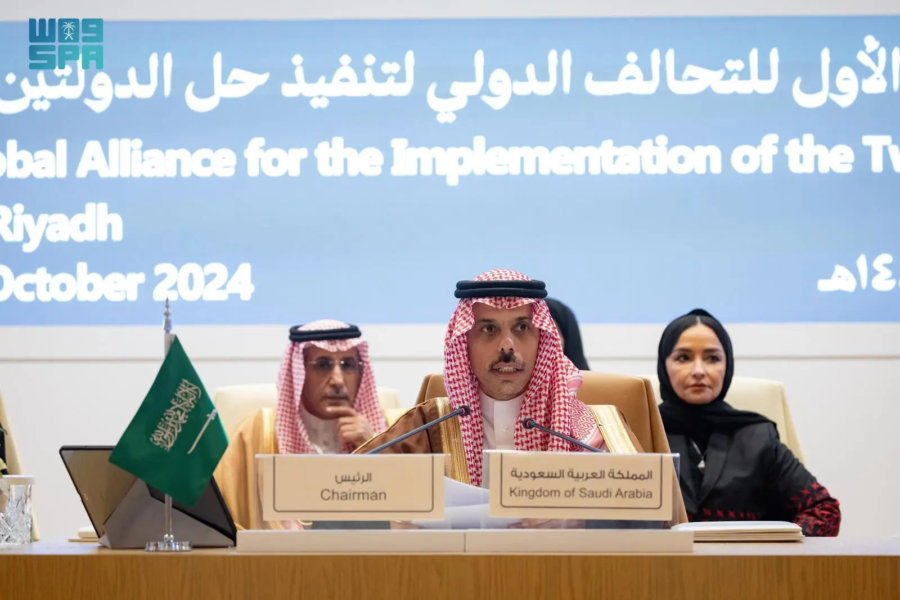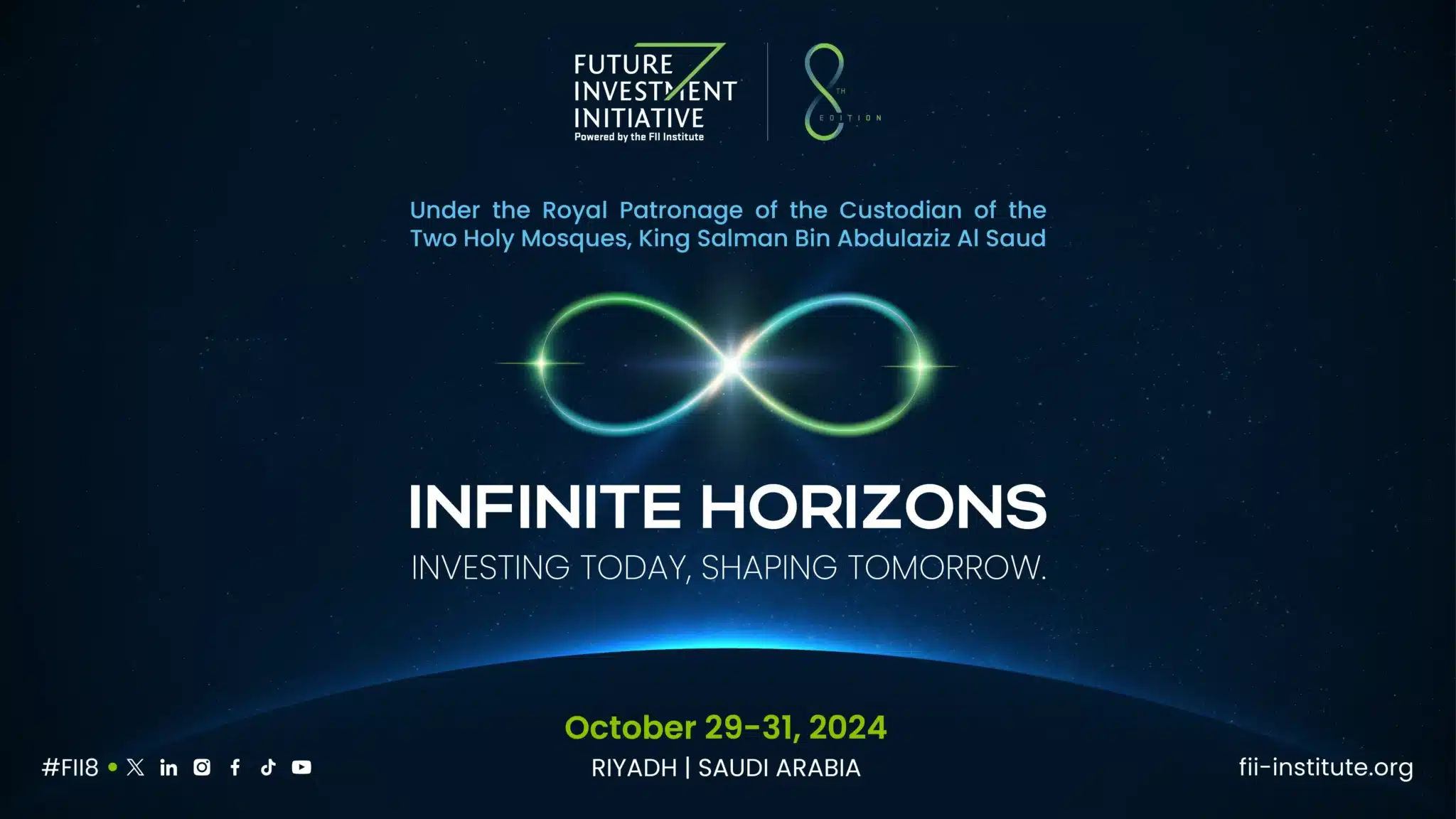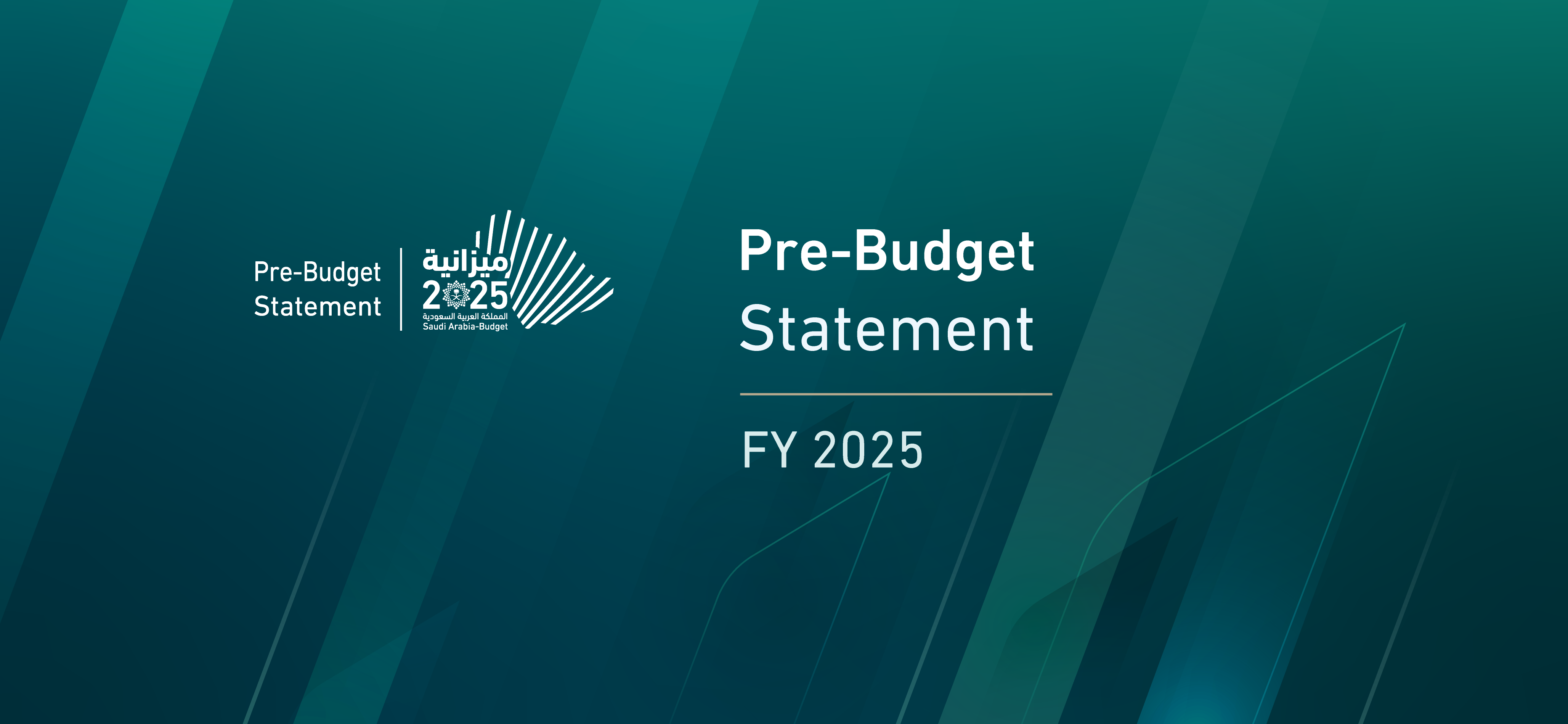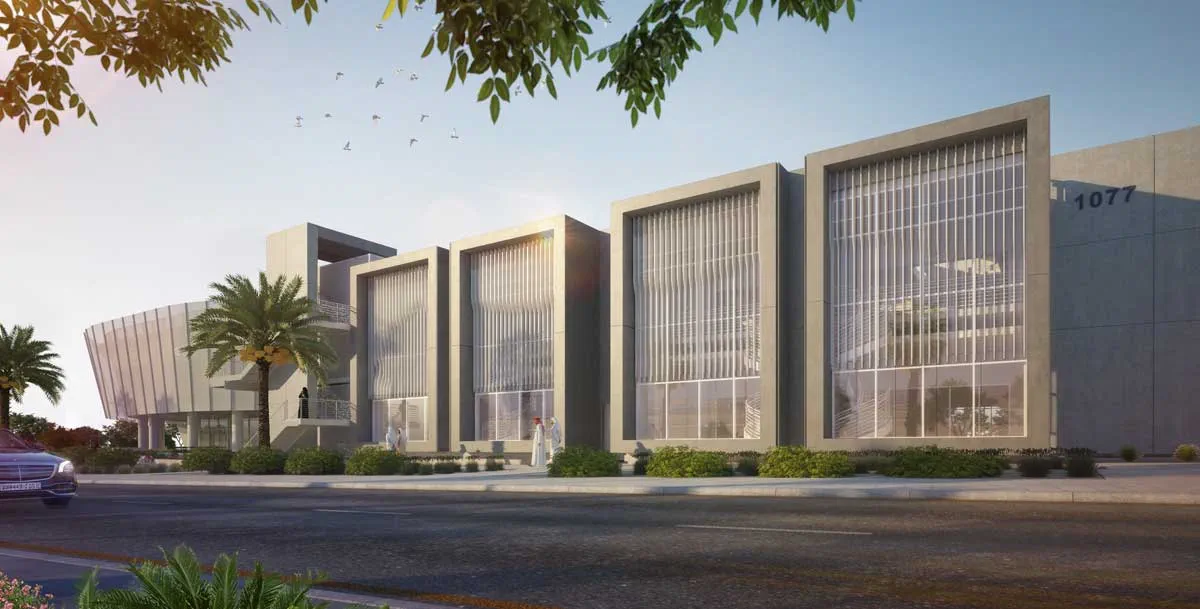
|
|||
QUOTED
|
|||
TOP STORYSaudi hosts first meeting of “International Alliance to Implement the Two-State Solution”
Saudi Arabia hosted the first meeting of a new international alliance to press for the establishment of a Palestinian state.
|
|||
TOP STORY8th Future Investment Initiative wraps in Riyadh
The 8th Future Investment Initiative (FII) conference just concluded in Riyadh, Saudi Arabia, running from October 29th to 31st, 2024. This year’s theme was “Infinite Horizons: Investing Today, Shaping Tomorrow.” [more] |
|||
TOP STORYMoF’s 2025 Preliminary Budget Statement assessed
Jadwa Investment assesses the Saudi Ministry of Finance’s recently released Preliminary Budget Statement for 2025 and mid-year 2024 economic review. [more] |
|||
TOP STORYAramco’s Wa’ed Ventures allocates $100 million for early-stage AI investments
Wa’ed Ventures, the $500 million venture capital fund owned by Saudi Aramco, plans to invest $100 million in early-stage artificial intelligence startups. [more] |
|||
Saudi Arabia’s Q3 GDP grows by estimated 2.8% y/yVia Rachna Uppal in reuters.com: Saudi Arabia’s economy grew 2.8% in the third quarter year on year, preliminary government data showed on Thursday, supported by an increase in non-oil activities. Non-oil growth rose 4.2%, government activities increased 3.1% and the oil sector grew 0.3%, data released by the General Authority for Statistics showed. GDP had shrunk in the second quarter on a year-on-year decline in oil activities of almost 9%. |
|||
Saudi Arabia’s Historical Mud City Seeing Boost in Tourism FDIVia Christine Burke and Sam Dagher in bloomberg.com: The Saudi company tasked with building a mega cultural heritage project in the heart of Riyadh is close to securing $400 million from foreign investors, indicating progress in the kingdom’s efforts to draw private funding into the tourism sector. Companies from Italy, Colombia and the United Arab Emirates are the latest to make commitments to co-develop hotels and villas at the site, Diriyah Co. Chief Executive Officer Jerry Inzerillo said in an interview on the sidelines of the Future Investment Initiative confab in the Saudi capital. Tourism is one area he said is going better than expected. Saudi Arabia aims to draw in 150 million tourists a year by 2030 — from about 109 million last year — and plans to spend almost $1 trillion on the sector in the next decade. It wants to see $80 billion in private investment by 2030. |
|||
Saudi-US bilateral accords ‘not that connected’ to Israel normalizationVia Nour El-Shaeri in arabnews.com: Saudi Arabia’s foreign minister said on Thursday that some of the bilateral agreements the kingdom has been negotiating with Washington are “not that tied” to the normalization of Saudi relations with Israel and are “moving ahead.” He noted that potential US-Saudi agreements on trade and artificial intelligence are “not tied to any third parties” and “can progress probably quite quickly.” “Some of the more significant defense cooperation agreements are much more complicated. We would certainly welcome the opportunity to finalize them before the end of the Biden administrations term, but that’s reliant on factors outside of our control,” he said. |
|||
Can Saudi Arabia build a thriving fintech hub by 2030?in jpmorgan.com: Let’s say an international fintech is looking to come to Saudi Arabia. First, Fintech Saudi will have a consultation with the company to understand its business model and determine if it needs to be regulated by the major financial bodies. If so, it brings in subject matter experts, law firms as well as other companies in the industry to give the relevant guidance, while involving the main regulators throughout the entire process. Next, Fintech Saudi will connect the company with the Ministry of Investment, which can provide support with setting up an entity in Saudi Arabia.8 Finally, Fintech Saudi can give the company links to private service providers in the country–such as office space or software businesses–that can help it get up and running quickly. |
|||
4,000-year-old fortified town found in Saudi Arabian oasisin dailysabah.com: The remains of the town, dubbed al-Natah, were long concealed by the walled oasis of Khaybar, a green and fertile speck surrounded by desert in the northwest of the Arabian Peninsula. Then an ancient 14.5 kilometre-long wall was discovered at the site, according to research led by French archaeologist Guillaume Charloux published earlier this year. The large town, which was home to up to 500 residents, was built around 2,400 B.C. during the early Bronze Age, the researchers said. It was abandoned around a thousand years later. No one knows why, Charloux said. |
|||
PIF partners with Google Cloud to create AI hub in Saudi ArabiaVia Nirmal Narayanan in arabnews.com: The partnership will provide AI training for millions of Saudi students and professionals, supporting the national objective of expanding the information and communication technology sector by 50 percent. Through Google Cloud’s technology, industries will have enhanced access to AI applications, enabling growth and capacity building. The agreement, subject to regulatory approvals, also includes joint research on Arabic language models and Saudi-specific AI applications. |
|||
Saudi Arabia Looks for More Global Investments in Chemicals PushVia Anthony Di Paola and Salma El Wardany in bloomberg.com: The kingdom is already in talks to buy stakes in companies in China and the state-run Saudi Aramco has said it wants more deals this year and the next. Investing in plants that produce chemicals — which Riyadh sees as a driver of growth of future oil demand — as a way to ensure it has a ready market for its vast crude supply. “We will be using oil to chemicals, domestically and abroad, and that’s why you see us, or you see Aramco investing a lot in China and we will be investing a lot everywhere else on planet Earth,” Saudi Arabia Energy Minister Prince Abdulaziz Bin Salman said at the Future Investment Initiative summit in Riyadh. “In this room in 2019, I did say we will monetize every molecule of energy this land has. Period.” |
|||
Saudi Arabia’s PIF pivots to domestic focus, eyes AI revolution, says Al-RumayyanVia Tala Michel Issa in arabianbusiness.com: “AI could add nearly $20 trillion to the global economy by 2030,” Al-Rumayyan stated, highlighting Saudi Arabia’s ambition to become a global AI hub. The fund is reportedly in early discussions about a potential AI partnership worth up to $40 billion with venture capital giant Andreessen Horowitz. Since its launch, the FII has facilitated deals worth over $125 billion, demonstrating Saudi Arabia’s growing influence in global investment circles. Al-Rumayyan highlighted that while financial returns remain important, investment decisions must balance economic, social, and environmental outcomes. |
|||
Saudi Arabia Vows to Maintain Its Status as an Oil GiantVia Tsvetana Paraskova in oilprice.com: As Saudi Arabia prepares to tender 44 gigawatts (GW) of renewable energy projects, it will continue to maintain its oil-producing potential to ensure global energy security, officials from the Kingdom said at the annual investment forum in Riyadh on Tuesday. Saudi Arabia, the world’s biggest crude oil exporter, will keep its maximum sustainable capacity of 12.3 million barrels per day (bpd) going forward. By 2027, the Kingdom will have more than 1.1 million bpd of production of oilfields currently under development, which are expected to offset the natural decline of legacy fields. |
|||
Saudi Arabia’s Vision 2030 is transforming women’s lives, says Princess Reemain fastcompanyme.com: Speaking at the HERizon Summit, held alongside the eighth Future Investment Initiative, she emphasized that the right policies are crucial for accelerating women’s progress in business and entrepreneurship. The event, themed “Invest in Women,” aims to bridge the gender gap and empower women in the global workforce. A recent report by the World Bank confirmed Saudi Arabia’s progress in gender parity, noting a substantial increase in female labor participation from 22% in 2016 to 34% in 2023. |
|||
Foreign investors flock to flagship Saudi economic conference — but face less free-flowing cashVia Natasha Turak in cnbc.com: Described in past years by some attendees as a bonanza for Saudi cash, fund managers who spoke to CNBC this year draw a distinctly different picture as the kingdom simultaneously upholds more requirements for prospective fundraisers and investors, while also facing a revenue crunch amid lower oil prices and production. “Without question, it’s gotten way more competitive to attract money from the kingdom,” Omar Yacoub, a partner at U.S.-based investment firm ABS Global, which manages nearly $8 billion in assets, told CNBC. “Everyone and anyone has been going to ‘kiss the rings,’ so to speak, in Riyadh.” |
|||
Following Israeli counterstrike on Iran, region appears to pull back from the brinkVia Paul Salem, Alex Vatanka, Paul Scham, Marvin G. Weinbaum in mei.edu: After last weekend’s limited Israeli strike on Iran, and Tehran’s apparent willingness to absorb the blow without serious retaliation, the Middle East region looks to be pulling back from the brink of a major regional war. Credit must be given to the US administration, which worked hard to convince the Israeli government to not hit nuclear and energy targets as well as avoid a strike so large that it would necessitate an Iranian retaliation. The Israeli decision to choose a path that would avert further escalation with Iran has raised hopes that, after more than a year of war, perhaps Prime Minister Benjamin Netanyahu is winding down this round of warfare. |
|||
High expectations, new players expected to take part in Saudi Arabia’s FIIin alarabiya.net: “We see some new big players coming to FII for the first time, and these people are the tech guys. So, you see people from Google, Microsoft, and IBM who were not really present before because they thought that FII would be just a world of bankers and private equities. Now we see the tech companies coming, which is great for us,” Attias said. |
|||
Aramco’s Venture Arm Allocates $100 Million for AI InvestmentsVia Fahad Abuljadayel in bloomberg.com: Saudi Aramco’s venture arm has earmarked $100 million to invest in artificial intelligence startups as it looks to accelerate Saudi Arabia’s push to become a more competitive force in global AI. Wa’ed Ventures has appointed an advisory board made up of former employees from companies including Meta Platforms Inc. and Amazon.com Inc. to explore early-stage investments in the sector. Money will be deployed over the next three years, according to the company. “This investment will not only incentivize local entrepreneurs but also support the localization of global talent,” Anas Algahtani, acting chief executive officer of Wa’ed, said in a statement on Sunday. |
|||
Renewed sense of purpose drives GCC transformationVia Mehran Haghirian in amwaj.media: The GCC’s ability to navigate its persistent internal challenges stems from a new pragmatic approach. Member states are free to pursue their individual national interests while still collaborating on key issues that benefit the bloc as a collective. This flexibility has allowed the GCC to remain relevant and make significant strides on the global stage, even if it does not always present a unified front. Decades of gradual institution-building and diplomacy, marked by numerous joint meetings at various levels each year, have laid the groundwork for this shift. |
|||